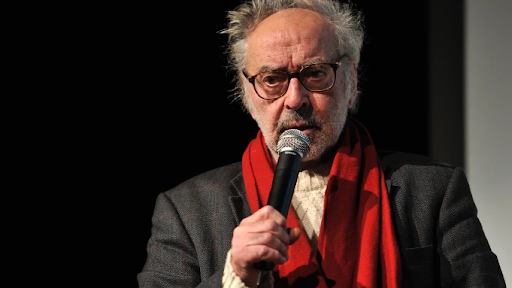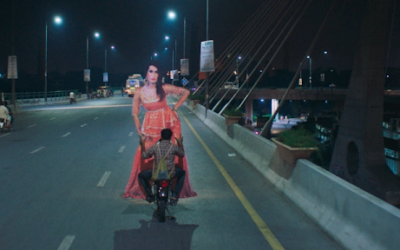Source: Deadline
The American film industry has produced many world-renowned directors, with such names as Steven Spielberg and Martin Scorsese being among the best known, but if one were to look outside Hollywood, one would be able to find several different directors whose contributions to the medium have been just as, if not more, influential. The nation of Japan, for example, has given the cinematic world such talents as Akira Kurisowa and Hayao Miyazaki. Moving further toward the Asian mainland, Tsui Hark and John Woo were able to make names for themselves as groundbreakers in Hong Kong cinema, not unlike Bong Joon-ho and Park Chan-wook for the South Korean film industry. Further out west on the continent of Europe, the nation of Italy has been the birthplace for countless prominent directors, from father of the spaghetti western Sergio Leone to Federico Fellini, who is perhaps best known for his work in the Commedia all’italiana genre. Then there is France, a country so significant in the world of cinema that one time period in particular has become known as one of the most important in film history: the French New Wave. Beginning in the late 1950s and continuing throughout the 1960s, this period saw the release of many French films of which their distinct approaches to editing, narrative, and visual style broke from the mold of commonplace filmmaking and remain an inspiration for modern filmmakers to this very day. Directors most often associated with the French New Wave include François Truffaut, Jacques Rivette, and a filmmaker who, on September 13th, 2022 passed away at the ripe age of 91, Jean-Luc Godard.
Born in Paris, France on December 3rd, 1930, Godard, whose films have garnered a favorable reputation for their radical and politically motivated nature, spent most of his early years living in Nyon, Switzerland before moving back to Paris in 1949 and joining a community of young film critics, his first steps into the world of cinema. Beginning his career writing for film magazines like Cahier du Cinema, which was founded by Andre Bazin and would soon become a major influence in modern-day film criticism and filmmaking, Godard first made a name for himself as a writer and director with the 1960 film “Breathless”, or in its native French language, “À bout de souffle”. Based on a story from Claude Chabrol and the aforementioned Truffaut, the film stars Jean-Paul Belmando as Michel, a criminal on the run, and Hollywood actress Jean Seberg as Patricia, his American-born girlfriend. With a bold and unconventional style that relied heavily on jump cuts, “Breathless” quickly attracted much attention and, alongside such other films as Truffaut’s “The 400 Blows” and Alain Resnais’ “Hiroshima mon amour”, kicked off the movement now known as the French New Wave.
With “Breathless” proving to be a success, Godard continued to produce films throughout the 1960s that challenged traditional methods of filmmaking. Such works include the 1963 film “Le Mépris” (“Contempt” in English), which featured such acting talents as Brigitte Bardot and Jack Palance, and “Le petit soldat”, which had actually been made in 1960 but had been banned in France until 1963, when the film was finally allowed to be shown to the public. The production of this film was where Godard met one film’s stars, Anna Karina, with whom he would share a marriage between 1961 and 1965. Although the marriage was short, most of Godard and Karina’s cinematic collaborations, which include “Bande à part” from 1964 and 1965’s “Pierrot le Fou”, would go on to become some of their most memorable works.
After divorcing Karina, Godard would enter a second marriage in 1967, this time with writer and actress Anne Wiazemsky, the star of his recent political satire “La Chinoise”. Despite lasting much longer than his previous marriage, this too would soon come to an end, with Godard and Wiazemsky divorcing in 1979. Godard would not marry ever again, but he would find a long-term partnership with Anne-Marie Miéville, whom he met in 1970 and would soon become a regular collaborator with. Even without the two ever getting married, this relationship proved to be Godard’s most successful, only coming to an end with his recent passing.
Godard’s most influential work may have been made during the 1960s and 1970s, but he continued to make films throughout most of his life, even seeing a minor career resurgence with such films as “In Praise of Love” from 2001 and 2010’s “Film Socialisme”. His final cinematic endeavor, however, came in 2018 with the release of “The Image Book”, which screened in competition at that year’s Cannes Film Festival and ended up receiving the Special Palme d’Or.
This was the latest of many European festival awards given to Godard, with prior wins including the Berlin Film Festival’s Golden Bear for his 1965 film “Alphaville” and the Venice Film Festival’s Golden Lion for 1985’s “First Name: Carmen”. In spite of such a legacy, Godard had strangely not won a single competitive Academy Award at any point during his career. Godard was awarded with an Honorary Oscar in 2010, but he chose to skip the ceremony; having been quite critical of the American film industry throughout much of his life, Godard claimed that such an award meant nothing to him. “I think it’s strange,” Godard said to a reporter when asked about his opinion on the Academy’s honorary award. “I asked myself: Which of my films have they seen? Do they actually know my films? The award is called The Governor’s Award. Does this mean that Schwarzenegger gives me the award?”
As far as Godard was concerned, most of America couldn’t care less for his contributions to the cinematic medium, but the same cannot be said for his native France. As soon as news of Godard’s passing was first made public by the French newspaper Liberation, many of the nation’s most prominent figures were quick to express their condolences and their appreciation for the iconic filmmaker. French President Emmaneul Macron released a statement on Twitter that paid tribute to Godard, referring to him as the “iconoclastic of New Wave filmmakers”. Former cultural minister of France Jack Lang, meanwhile, spoke on France Info Radio and said that Godard was “absolutely unique… he wasn’t just cinema, he was philosophy, poetry.” Anyone familiar with Godard’s work would most likely find it very difficult to disagree with this sentiment.




